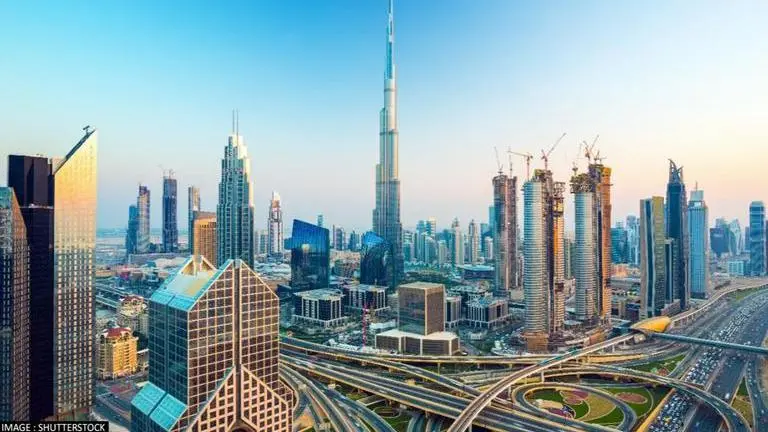Updated 7 October 2021 at 22:10 IST
UAE commits to net-zero carbon emissions; stays mum on plans to expand oil business
The OPEC member is the first Persian country to participate in the Paris Agreement for the climate. The agreement seeks to reduce the rise in global temperature
- World News
- 2 min read

In a significant development, the United Arab Emirates has become the first Persian country to commit itself to reduce carbon footprints by pledging to commit net-zero emissions by 2050. However, the country hasn’t said anything about the use or production of petrol, diesel and other fuels/ oils.
The announcement was made by the UAE government on Thursday at the global Expo 2020 in Dubai. The country has committed itself to significantly reduce the net carbon emissions to zero, in order to align itself with the Paris Agreement on climate.
UAE commits to net zero carbon emissions
The OPEC member is the first Persian country to participate in the Paris Agreement for the climate. The agreement seeks to reduce the rise in the global temperature to 1.5 degrees celsius, with respect to the pre-industrial levels.
Announcing the country’s active participation in reversing climate change, Dubai’s ruler Sheikh Mohammed bin Rashid Al Maktoum announced at Expo 2020 that the Arab country would invest $163 billion or 600 billion Dirhams in renewable energy to reduce carbon emissions as a part of their commitment to the cause. The government in a statement said that a significant economic potential provided by the route to net-zero energy actively support the vision of the UAE to become the world's most dynamic economy. Hence, they want to commit themselves to the goal of net-zero carbon emissions.
Advertisement
However, contrastingly, the OPEC member ( member of Oil Producing & Exporting Countries), the UAE is the major oil and gas producer. According to the US Energy Information Administration's 2019 report, the UAE produces an average of 4 million barrels of petroleum and other fuels/ oils per day, placing it the sixth-largest oil-producing country in the world. The vow to net-zero energy may put a lot of pressure on Saudi Arabia, the world's largest oil producer, to transition away from relying on fossil fuels. However, the transition will take time.
The country's commitment to climate action doesn't go hand in hand with the country’s economic agendas. As ADNOC, the national oil firm of UAE had received approval less than a year ago to invest $122 billion in introducing new oil and gas resources. By 2030, it wants to raise oil manufacturing capacity to 5 million barrels per day.
Advertisement
Image: Shutterstock
Published By : Aakansha Tandon
Published On: 7 October 2021 at 22:10 IST
